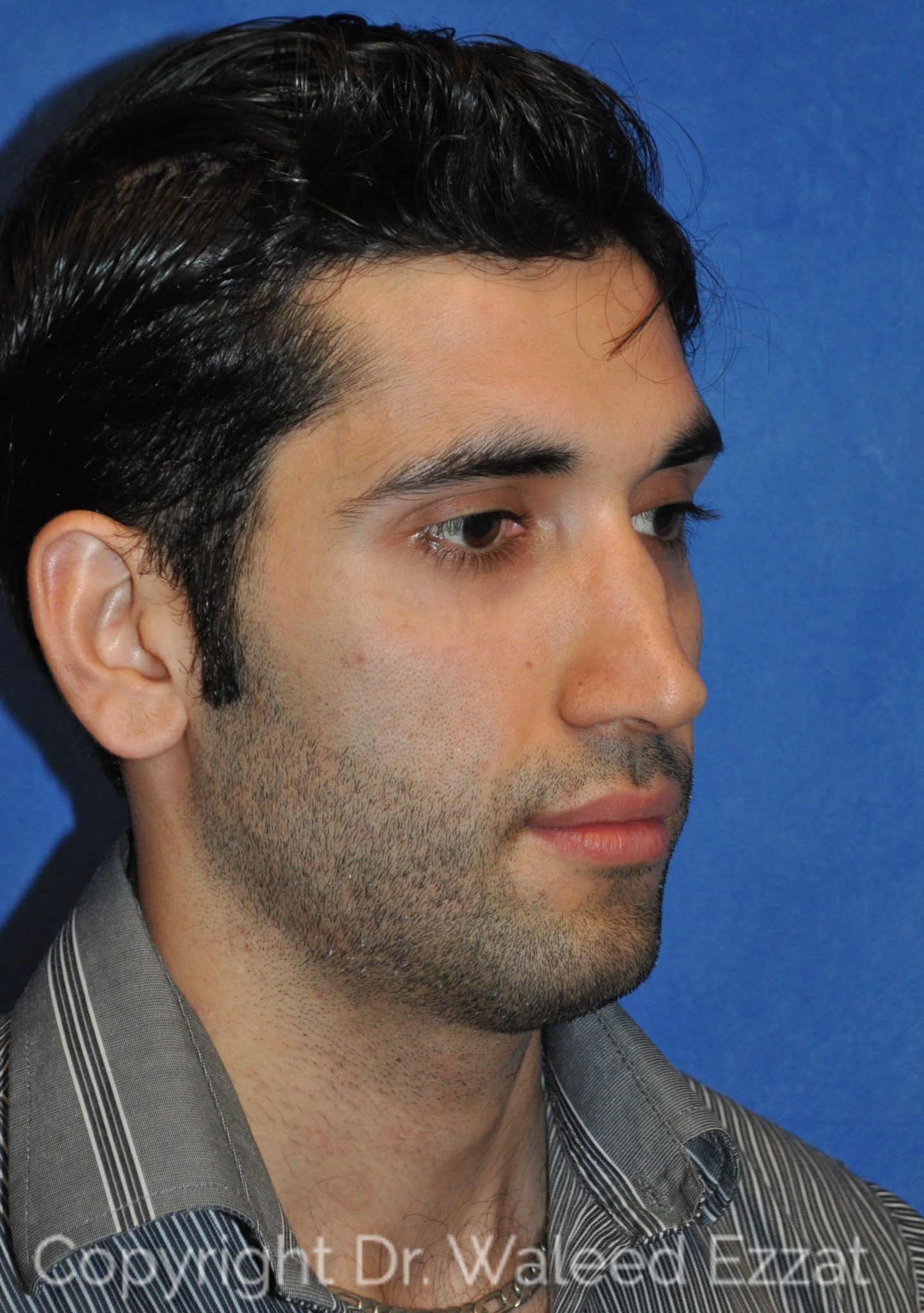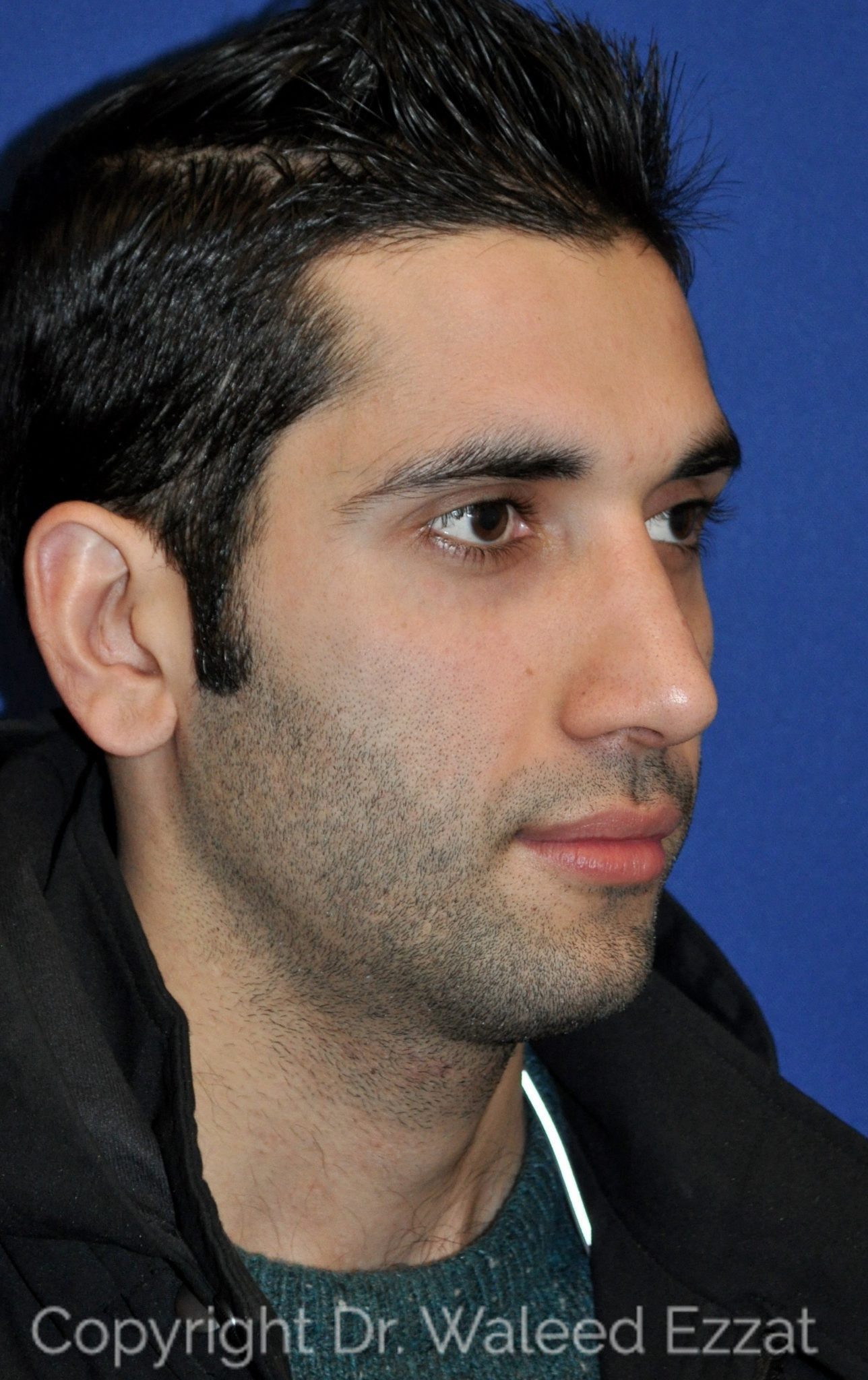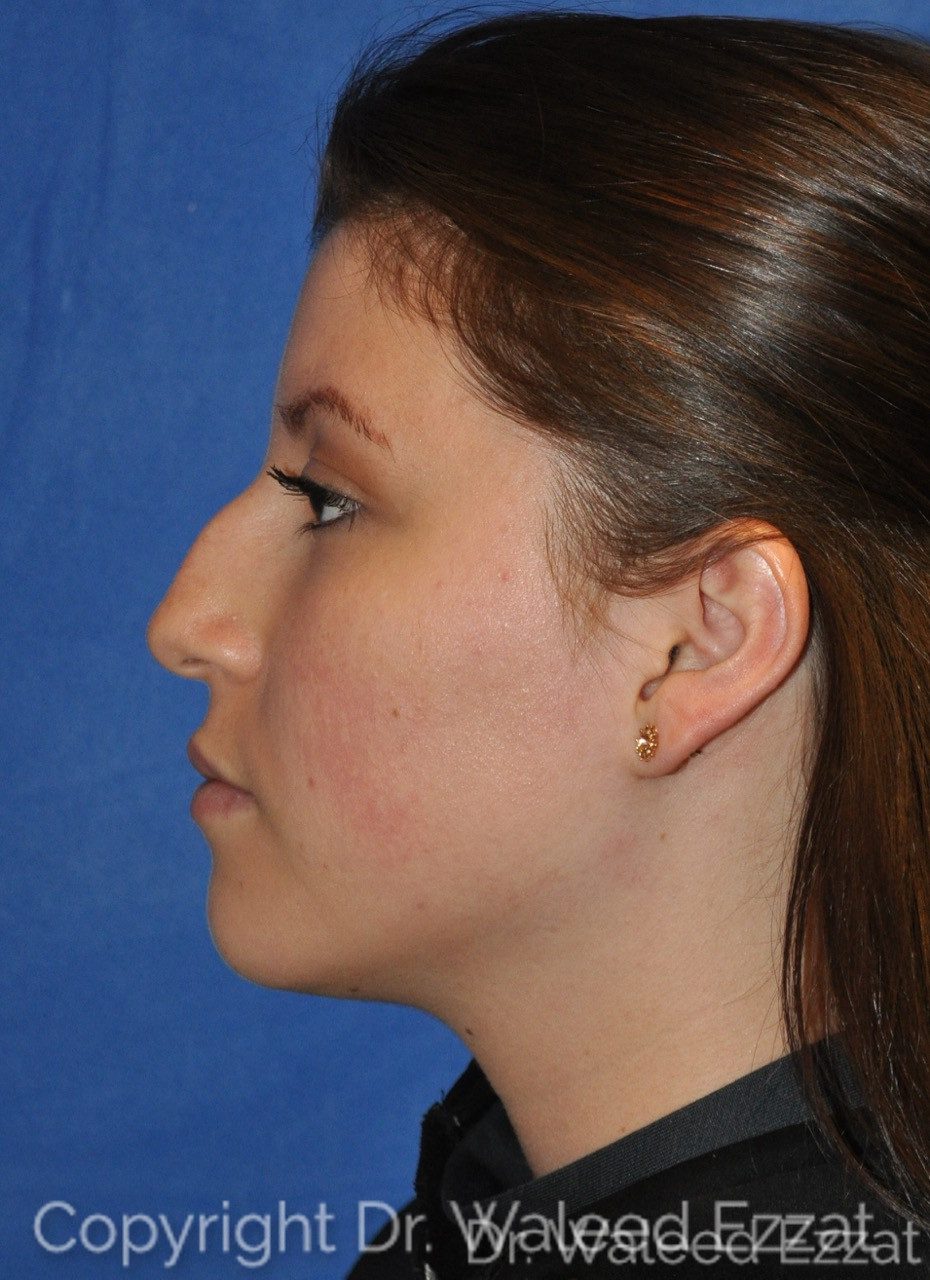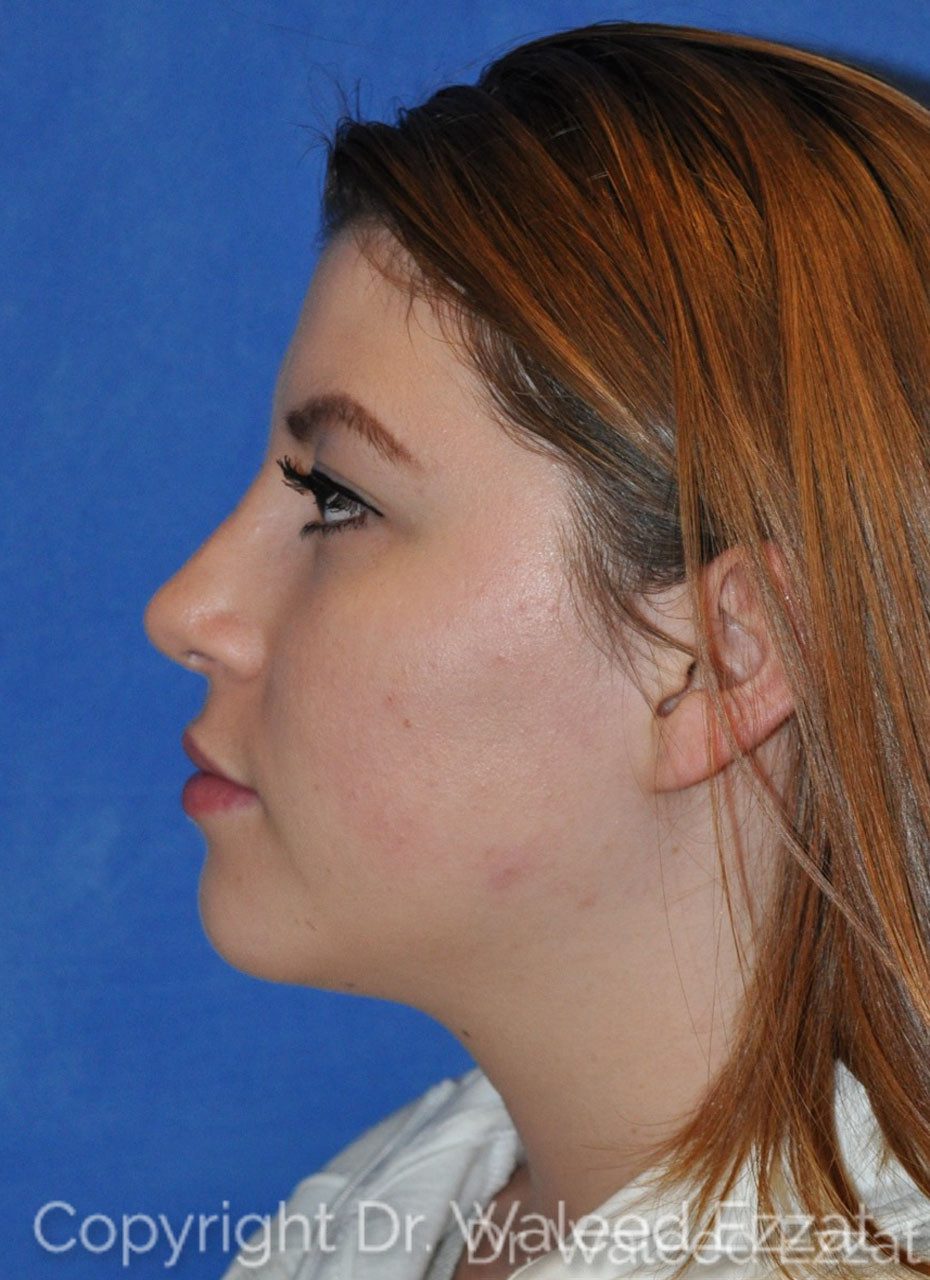Implant Failure Rhinoplasty
Nose implants are quite popular, especially among Asian rhinoplasty techniques. Nose augmentation with nose implants can help raise the nasal bridge, elongate the tip of the nose, and enhance the overall features of the face.
At our office near Boston Common, we offer a range of nose implants and revision techniques for failed implants. Standard nose implants are typically made of biocompatible alloplastic materials such as silicone. For the majority of patients, nasal implants can provide great natural-looking results. However, there are some individuals, approximately 10-20% of nose implant recipients, that end up having complications.
For individuals experiencing nose implant failure, Boston facial plastic surgeon Dr. Waleed Ezzat offers implant failure rhinoplasty. Dr. Ezzat uses cutting-edge grafting techniques using the patient’s own tissue to naturally restore the nose’s shape and functionality.
The benefits of using your own cartilage instead of implants include:
- Longer-lasting results
- Significantly less scar tissue
- Reduced risk of infection
- Lower risk of reabsorption
Dr. Waleed Ezzat is the lead surgeon at the Boston Center for Facial Plastics. As a double-board certified facial plastic and reconstructive surgeon and otolaryngologist and Top Doctor Award recipient, Dr. Ezzat is recognized as a leader in cosmetic and corrective rhinoplasty. Well-versed in the ethnic and cultural differences and considerations for facial anatomy and aesthetics, Dr. Ezzat has successfully helped many patients from different backgrounds enhance their natural beauty.
We offer virtual consultations and can help with travel arrangements into Boston for treatment.
Contact us online to learn more
about your surgery
or to schedule your consultation.
When to Consider a Nose Implant Revision
The most common reasons men and women consider having nose implant revision surgery include:
- Distorted nose due to scar tissue and thickened skin
- Implant displacement
- Improper shape or placement of nose implant
- Thinning skin
- Implant protrusion
- Upturned, droopy or pinched nose due to implant shift or complication
- Infection or inflammation
- Capsular contracture – build up scar tissue around the implant
- Dissatisfaction of previous nose implant
- Loose implant
- Deviated septum
- Skin redness around the implant
- Calcification
The best candidates for implant failure rhinoplasty should have realistic expectations for their results and be in good overall physical and mental health. Choosing a facial plastic surgeon who has experience in nose implant revision can help ensure you get the best possible outcome.
Visualize the Difference!
Visualize your results easily with an advanced rhinoplasty simulation tool. Launch SimulatorImplant failure rhinoplasty is much more complex than traditional rhinoplasty. It requires a higher level of technique as well as a deeper understanding of the complications related to nose implants. Dr. Ezzat’s extensive knowledge-base and specialized approach to cosmetic and corrective rhinoplasty surgery has made him a highly sought-after facial plastic surgeon.
Before Your Revision
Before you schedule your rhinoplasty procedure, you’ll have a private consultation with Dr. Ezzat. During this time, you can ask Dr. Ezzat any questions you may have about your surgery and discuss your ideal outcome. Dr. Ezzat will also explain the procedure in greater detail and let you know what results you can expect to see.
Dr. Ezzat will perform a physical examination to determine if implant failure rhinoplasty is right for you. Depending on your aesthetic concerns, he may recommend additional procedures to complement your results.
Your Implant Revision Procedure
Implant failure rhinoplasty is typically an outpatient procedure performed under general anesthesia. However, this type of revision surgery can take longer than traditional rhinoplasty because of the unique issues it presents.
For each patient, Dr. Ezzat develops a customized approach to address your concerns. For nose implant revision, Dr. Ezzat first begins by making a small incision along the underline of your breast. From there, he removes the rib cartilage he will use for your nose.
After the rib cartilage has been removed, Dr. Ezzat will make a tiny incision to remove the nose implant and any scar tissue that is contributing to the malformation of the nose. Whenever possible, Dr. Ezzat will use the previous incision site to minimize additional scarring.
Depending on your specific needs, Dr. Ezzat will use your own cartilage in a way that can reshape the height and length of the nasal bridge, nostrils or the tip of the nose or enhance the shape of the nose profile. Once the cartilage is put in place, the skin is smoothed over the final shape of the nose for a more natural look.
Request a Consultation
Your Recovery
After surgery, you will likely have some swelling, bleeding and discomfort for the first few days. Keep in mind that revision rhinoplasty takes more time to recover than your original surgery.
To help keep you comfortable after your nose implant failure surgery, you can gently apply cool compresses to your forehead and keep your head elevated. You should also sleep on your back with your head elevated for at least the first week following surgery. Using a reclining chair or stacking pillows under your head can help keep you upright at night.
Avoid blowing your nose for the first couple of weeks and limit vigorous exercise for at least a month. If stitches need to be removed, Dr. Ezzat will want you to return for a follow-up appointment about a week after surgery.
Your New Look
It may take longer to see your final results than it did for your original nose surgery. However, after you have given your nose time to heal and your results have fully developed, you should be able to breathe easier and enjoy the looks of your shapelier nose.
Dr. Ezzat focuses on giving your nose a subtle, natural enhancement that complements your facial anatomy. Because cartilage grafting is well-received by the body, your results should be long-lasting.
Contact us online or call our office at 857-350-4205to learn more about your facial surgery options.

Telephone No.857-350-4205




